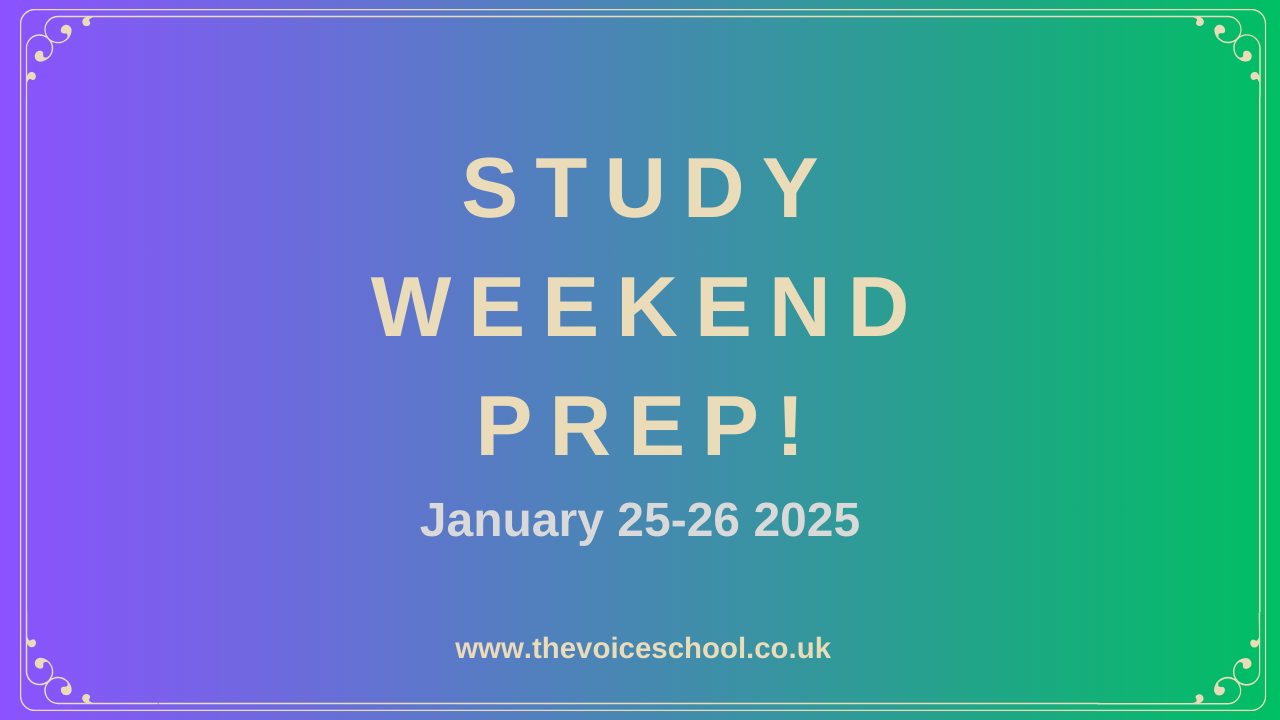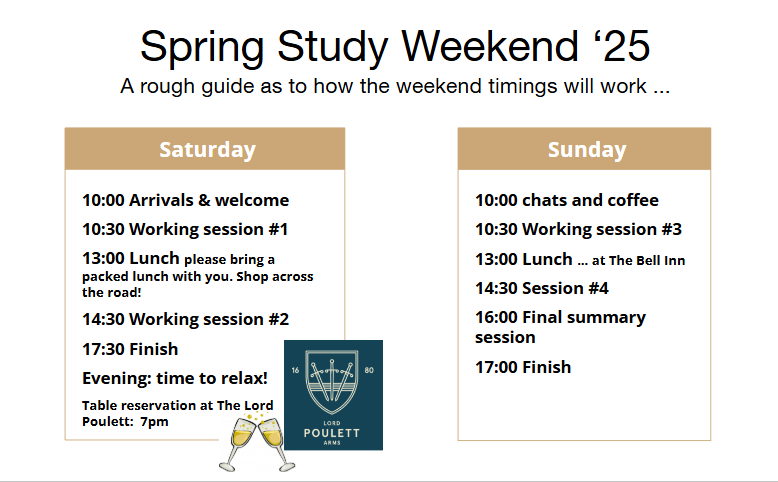Voice-works Spring Study Weekend
25-26 January 2025
Noticeboard: Inspiration & Resources

The Study Weekend will explore the origins of opera, oratorio, and song. We will journey from medieval troubadour songs and Renaissance lute music to Baroque opera and oratorio, and then to the Classical period. The history of song is marked by innovation and emotional expression.
We should view the time we'll spend as an opportunity to further develop our identities as singers—the thought journey that leads and inspires us: Your Process.
Listen to my reasoning and suggestions in my short video ...


YouTube: Sharing our chosen repertoire ...
Let's collaborate! Add preferred performances of your 3 chosen pieces to our bespoke Voice-works Study Weekend YouTube Playlist.
Listen in, watch and enjoy the process of becoming familiar with all the repertoire we'll be studying together.
Click the button below to access and add your repertoire choices into the mix!
The PlaylistChronological Timeline of Repertoire
Visualizing the Timeline
This timeline spans over two centuries, from Dowland’s Renaissance lute song in 1597 to Meyerbeer’s grand opera aria in 1836, highlighting the evolution of vocal music through distinct styles: Renaissance, Baroque, Classical, and Romantic. Each piece showcases the diverse emotional and technical demands of vocal repertoire.
-
John Dowland
- Can She Excuse My Wrongs? (1597)
Published in The First Booke of Songes or Ayres, this lively lute song reflects Elizabethan England's courtly traditions.
- Can She Excuse My Wrongs? (1597)
-
Claudio Monteverdi
- Oblivion Soave (1642)
From L'incoronazione di Poppea, a solo aria sung by Arnalta and often called Arnalta's Lullaby. (SAL)
- Oblivion Soave (1642)
-
Henry Purcell
- I Attempt from Love’s Sickness to Fly (1695)
From The Indian Queen, this playful and ornate aria captures the expressive depth of the English Baroque.
- I Attempt from Love’s Sickness to Fly (1695)
-
Johann Sebastian Bach
- Erbarme dich (1727)
From St. Matthew Passion, this profound aria conveys themes of repentance and divine mercy, characteristic of Baroque sacred music. - Zerfliesse, mein Herze (1724)
From St. John Passion, this aria offers an intimate expression of sorrow within Bach's Lutheran musical framework.
- Erbarme dich (1727)
-
George Frideric Handel
- Let the Bright Seraphim (1743)
From Samson, this jubilant piece showcases Handel’s ability to blend virtuosic vocal lines with orchestral accompaniment. - Waft Her, Angels (1752)
From Jephtha, this poignant aria reflects Handel’s mastery of emotional storytelling in oratorio.
- Let the Bright Seraphim (1743)
-
Thomas Arne
- Nature Beyond Art (1762)
Composed as incidental music for Garrick's play Cymbeline, this piece highlights Arne’s contribution to English song.
- Nature Beyond Art (1762)
-
Ludwig van Beethoven
- Abscheulicher! (1805)
From Fidelio, this aria captures Leonore’s courage and resolve within Beethoven’s dramatic operatic style.
- Abscheulicher! (1805)
-
Franz Schubert
- Ganymed (1817)
This song, set to Goethe’s poetry, blends Classical and Romantic elements, showcasing Schubert’s lyrical genius.
- Ganymed (1817)
-
Gaetano Donizetti
- Una furtiva lagrime (1832)
From L’elisir d’amore, this tenor aria reflects the bel canto tradition’s emphasis on beauty and expressiveness.
- Una furtiva lagrime (1832)
-
Giacomo Meyerbeer
- Nobles Seigneurs (1836)
From Les Huguenots, this aria demonstrates the refinement and elegance typical of French grand opera.
- Nobles Seigneurs (1836)

Got some questions?
Message me inside The Green Room
for any discussions or questions arising from what you're reading on this page. Let's continue the conversation over there ...

